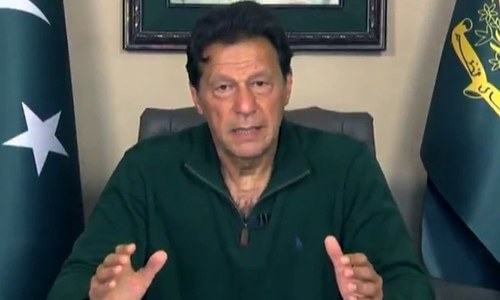IT is worth noting that this is the second food price spiral that this government has presided over. Last year when the same thing happened the government ordered an inquiry, and people are invited to recall that with much sound and fury, and two inquiry reports were released back in April of this year, one of sugar and another on wheat.
Much angry rhetoric was exchanged after that. A head even rolled, sort of, when Jahangir Tareen had to appear on TV to try and clear his name and then silently, in the still night, depart the country for London, that perennial bastion of those on the lam from trouble in their own country. The other person named in the report was none other than the country’s own minister for national food security, Makhdoom Khusro Bakhtiar. The latter did not feel compelled to flee though. He was transferred out of his position into another, and there ended his troubles.
At the time Prime Minister Imran Khan had tweeted the following lines and I quote them verbatim to ensure there is no misunderstanding. “As promised preliminary reports into sudden price hikes of sugar & wheat have been released immed without alteration/tampering. This is unprecedented in Pak’s history. Prev pol ldrships bec of their vested interests & compromises lacked moral courage to order & release such reports. I await the detailed forensic reports now by the high-powered commission, which will come out on 25 April, before taking action. InshaAllah, after these reports come out no powerful lobby will be able to profiteer at the expense of our public.”
In the days that followed, these talking points were repeated over and over again on TV talk shows, press conferences and other public remarks of the party leadership. Their government had taken the “unprecedented step” of inquiring into such a price hike, of releasing the reports. Their government will now, after the detailed forensic reports are released, take further action against all culprits. After all this is said and done, “no powerful lobby will be able to profiteer at the expense of our public”.
Apparently, powerful lobbies are not deterred by inquiry reports, triumphant tweets and angry rhetoric.
And here we are, not more than six months later, at exactly the same point in time when last year’s price spiral got going, living through the same thing all over again. Apparently, powerful lobbies are not deterred by inquiry reports, triumphant tweets and angry rhetoric.
Back then, they first blamed the Sindh government, and they are doing the same today. They blamed previous governments too, and will do so again now that we have a possibly dangerous cocktail of food price hikes and the commencement of an opposition street protest campaign. They’ve already invoked Covid-19 to try and dissuade the opposition from holding its protest gatherings, saying these run the risk of spreading the infection. Meanwhile, the prime minister had no issue attending and addressing a large gathering of his own party’s lawyer wing held at the convention centre, Islamabad. I wonder how strictly social distancing and masking was observed at that gathering.
The inquiry reports released back in April identified weak procurement by the government up till the summer of 2019 for the ensuing wheat price spiral in the winter months of that year as the core reason why the price spiral happened. Then in April 2020 the report was released, and by July we began hearing the same kind of news coming out of successive government meetings as we had heard in the previous year. Those with an ear to the ground could smell trouble back in July, when procurement targets were again being missed by provincial and federal governments, wheat imports were opened up, and then in what seemed like a deliberate attempt, skewed in such a way as to only allow a few big importers to avail the facility.
When the ECC made the decision to remove all ceilings from wheat imports in an attempt to keep the market properly supplied in the face of weak procurement domestically, import permits began being issued for batches of 500,000 tons per consignment, instead of keeping the door open to anybody who wished to import wheat. This automatically eliminated all but the largest parties from being able to participate in wheat imports. Reportedly at the time the finance adviser Hafeez Shaikh was angry about this, and asked why this was being done, but it is not clear whether he ever received a satisfactory answer.
By August the spiral got underway in earnest, and just like a repeat of last year, the government began by blaming Sindh, the only province controlled by an opposition party. Then on Aug 12 the information minister told us that it was the “top priority” of the government to keep flour prices stable, that nobody would be allowed to sell at a higher price, that the prime minister had taken strict notice, chaired a meeting on prices of daily-use items, including but not limited to sugar and flour, that regular meetings were being held, that provincial authorities had been issued instructions, and so on.
Then he gave us some prices, saying a 20-kg flour bag was being sold in KP at Rs900 to Rs1,150 and in Karachi (Sindh) at up to Rs1,700. This was in August. At his press conference on Tuesday, he gave the following prices for a 20kg bag of flour: in KP between Rs1,100 and Rs1,300; in Sindh between Rs1,100 and Rs1,500. Notice the price has increased in KP and decreased in Sindh, as per the minister’s own figures.
On Aug 24, the minister industries, Hammad Azhar, told us that with imports landing at the ports, prices of essential items would come down. They didn’t. And now the prime minister himself announced that he has taken notice once again and that starting from Monday, Oct 12, his own Tiger Force will work to bring down prices. The only question left to ask is this: do the rulers think that running the country is a joke?
The writer is a member of staff.
Twitter: @khurramhusain
Published in Dawn, October 15th, 2020














































